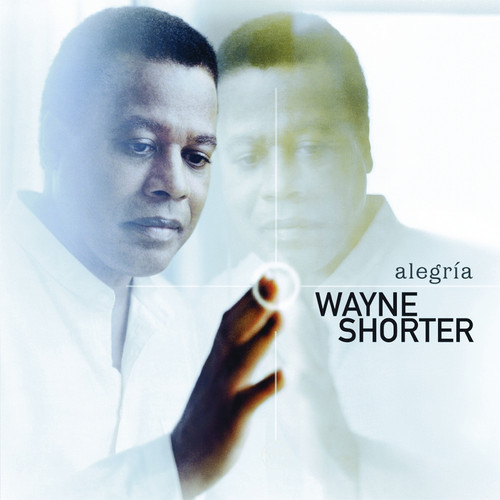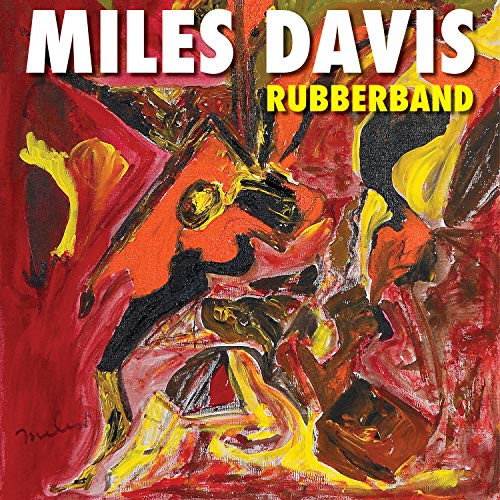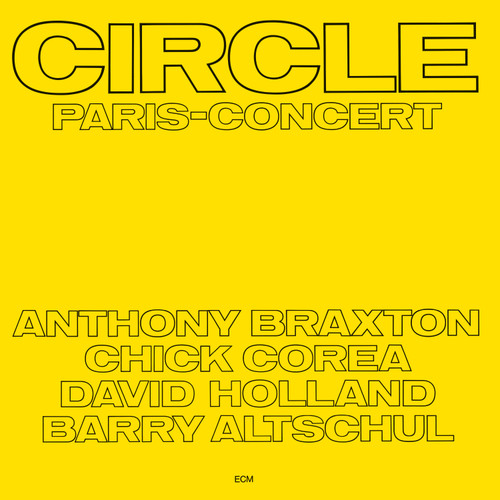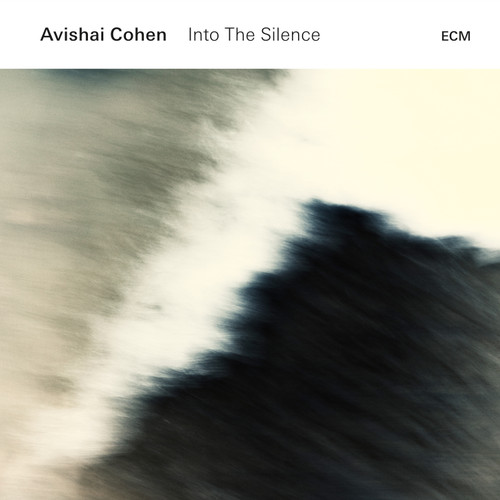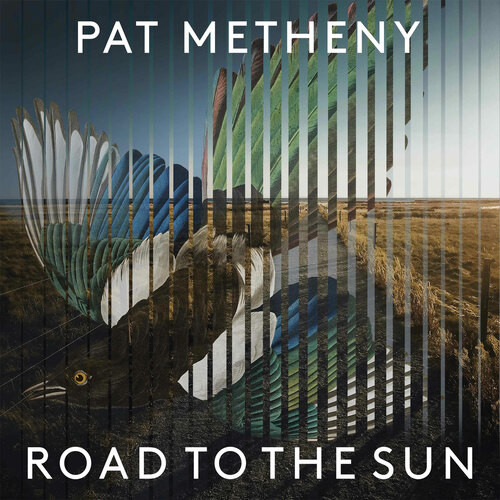Hypnotic, magnetic new album by Anouar Brahem which adds a new dimension to our knowledge of this exceptional Tunisian musician. 'Le pas du chat noir' gives the clearest indication yet of the work of Brahem as composer and features a spacious 'chamber music' that resonates with the freshness of improvisation. The instrumentation is unique: oud, piano, accordion. Brahem's writing for this combination is highly evocative, meticulously controlled and sparse. Half of the magic, as he notes, resides in the not-played, in the marvellous mingling of overtones, sounds that rise from the piano to blend with the warm tones of the oud and the breath of the accordion's bellows.
Initially published on CD in September 2002, vinyl is issued in June 2019.
FEATURED ARTISTS
TRACKLIST
A1 Le Pas Du Chat Noir 7:51
A2 De Tout Ton Cœur 7:38
A3 Leila Au Pays Du Carrousel 6:33
B1 Pique-nique À Nagpur 4:11
B2 C'est Ailleurs 8:02
B3 Toi Qui Sais 5:56
C1 L'arbre Qui Voit 6:07
C2 Un Point Bleu 1:44
C3 Les Ailes Du Bourak 4:52
C4 Rue Du Départ 6:00
D1 Leila Au Pays Du Carrousel, Var. 5:36
D2 Déjà La Nuit 5:10
BACKGROUND
Unique instrumentation - oud, piano, accordion - is only part of the allure of Anouar Brahem's exceptional new album. The pieces that make up "Le pas du chat noir" (The Black Cat's Tread) came into existence under unusual circumstances ...
After the intense and emotionally draining experience of recording the "transcultural" album "Thimar" with John Surman and Dave Holland in 1997, an album on which jazz improvisation was cross-referenced with the modes of Arab music, Brahem found himself, for the first time ever, reluctant to play the oud.
"I stopped playing the oud for quite a long time," Brahem recalls. "But it was important to have a contact with the music. I didn't stop listening to music, nor did I stop writing. I have a piano in my atelier in Tunis, and I began to compose on it." In the past, Brahem has quite often turned to the piano when writing music for film, for instance. "The sound of the oud has an identity and a specific Arabic character. The piano gives me another sonority which I like very much, and which doesn't have those associations. I'm not really a piano player, but I was using the instrument as a pen - to write modal music. So gradually some material came together - themes, melodies - and I could see that there was some kind of unity there, but I had no plans for the music."
Brahem played some of the material for ECM producer Manfred Eicher, who encouraged him to develop his piano music further. But it took a couple of years for the music to find its current form and for two other musicians to become part of it, and for the oud to re-enter and find its place.
Pianist François Couturier has worked on projects with Anouar Brahem since 1985, and was an obvious first choice as pianist. " When playing the melodies, " Brahem says," I sometimes sang with the piano, and I realised I also needed another sound, a sustaining sound, more linear." Cello was briefly considered, then Brahem thought about the work of accordionist Jean-Louis Matinier, a musician he had first met in a recording studio ten years earlier. He had subsequently followed Matinier's collaborations with Gianluigi Trovesi and with Renaud Garcia-Fons. "The grain of the accordion sound is important, but more than that Jean-Louis understood the real place for his instruments: he didn't want to do more than the music requires. And this discretion gave strength to the performance." As Brahem says, Matinier "carries the inner song of the music."
Despite the wealth of experience that both Couturier and Matinier have amassed, they found the clearly-etched, sparse music, the "silent songs" of "Le Pas du Chat Noir" difficult to play.
"The music is very precisely written, and it's important to respect all the tempo markings and pianissimos, but at the same time the interpretation needs sensitivity and to play as if you were improvising. So you have to be very focused. With the elasticity in the tempos - sometimes it's accelerando, sometimes it's rallentando, you have to be very aware of maintaining internal tension."
In this spacious music, the tones that are not played are also of critical importance. "I told François to recognise that the overtone is sometimes more important than the tone. The reverberation of the harmonics after the notes is a big part of this music. The overtones of the piano in this music sometimes remind me of the overtones of the santour [hammered zither] in the music of Iran...
"Manfred also found the right place to record this music [the Radio DRS Studio in Zürich] with an excellent piano and a great acoustic. It was very helpful to be able to record without headphones. We took our time to record, and mixed some months later - that was also crucial, finding the right balance between the instruments. We also took a long time determining the order of the pieces, too. It was all a careful, step-by-step process."
To what category does this music belong? In terms of Brahem's work it has the closest atmospheric affinities to "Barzakh" and "Comte de l'incroyable amour", yet it is very different, too. Early listeners to the music have spoken of parallels with the work of Satie, Ravel, Debussy, Mompou, even the gentle insinuations of Arvo Pärt's "Spiegel im Spiegel" and "Für Alina" . "I don't know enough about European piano repertoire to make those references intentional," says Brahem. "But I was once very touched by some music of Satie that I heard, perhaps ten years ago. It seemed not western, not oriental, somehow non-temporal. This music really spoke to me. And after I had written a few themes, I thought perhaps there might be a connection..."
Brahem hopes the album will not be relegated to "world music" columns or browser bins: "I'm increasingly irritated by the term. It's not a movement, it's not an aesthetic, it's nothing more than a marketing tag for stores in the west, which throw together completely unrelated music. The equivalent, from my perspective, would be to go into a store in Egypt and find Boulez, Keith Jarrett and Britney Spears all marketed as 'world music'. One of the things I appreciate about being at ECM is that I've never been treated as an exotic appendix of the catalogue. I'm making my own kind of contemporary music on a contemporary music label."
3 Reviews Hide Reviews Show Reviews
-
He plays like he listens
Anouar Brahem listens in uncommon ways, even to the footsteps of a black cat. His magical music comes from another place and another way of listening, and amply assisted by Couturier on piano and accordionist Jean-Louis Matinier. Anouar and pals, are definitely in the Transportation business with a capital T. They manage to transport the listener on a sonic carpet to other places in the world and seemingly not in this universe, but in a parallel one: things sound familiar but turn up to be surprises. This bit of magnificence is exquisitely nuanced and mesmerizing.
-
Another Brilliant Work from Anouar Brahem
Anouar Brahem is a great artist. He manages to sound modern and archaic at the same time. His most recent previous album, Astrakan Cafe, evokes a North Africa, with his oud accompanied by clarinet and percussion. My favorite of his previous albums, Compte de l'Incroyable Amour, is a work of great spirituality and heart. This album, Le Pas Du Chat Noir, with accompaniment from a piano and clarinet, sounds like sophisticated Parisian parlor art song, but of what era? Debussy's? Piaf's? Ravel's? Brahem's! Typically perfect ECM audio engineering allows the listener to fall deeply into this music's thrall. Highly recommended.
-
Pensive, intricate, and beautiful
This album is what music is all about. If I'm guessing right, the reviewer from Italy below compares this to the impressionistic music of Debussy et al. That's an apt comparison. It's not as 'free form' as Keith Jarrett (one of Brahem's major influences); it's structured music, but certainly doesn't let its meter weigh it down. Rarely do all three instruments combine. Instead, one instrumentalist will muse and the others will fill in or respond.






